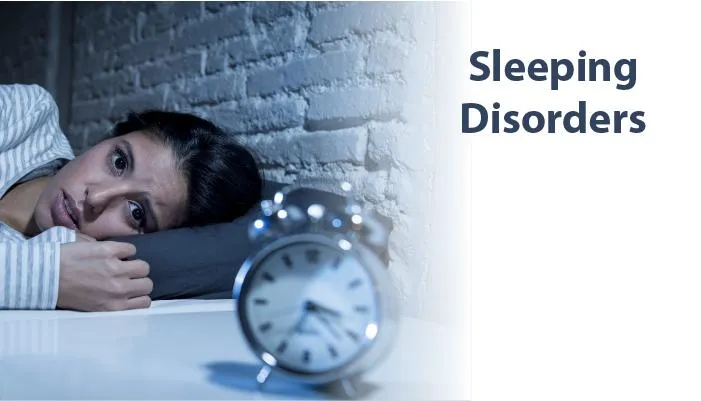Different Types of Sleeping Disorders and How to Deal with Them
February 8, 2023
Sleeping disorder is a condition in which people find it hard to get sound sleep. The reason for the sleep disorder is increasingly hectic schedules, stress, etc. Studies reveal that inadequate sleep can heavily and negatively impact mood, energy, concentration and overall health.
What are the Different Types of Sleeping Disorders?
Based on the underlying health condition, sleep disorder is categorised into different types.
- Insomnia
Studies reveal that around 50% of American adults’ experience insomnia sometime in their life. It is a condition in which people find it hard to remain asleep or to fall asleep. Doctors suggest that insomnia results from stress, digestive problems, hormone problems, anxiety and jet lag.
- Sleep Apnea
Another type of sleeping disorder is sleep apnea, in which the body finds it hard to get adequate amounts of oxygen. It is a severe condition in which a person remains awake at night. Sleep apnea is further divided into two types - obstructive sleep apnea and central sleep apnea.
- Restless Leg Syndrome
As the name suggests, restless leg syndrome is a condition in which people feel like moving their legs due to a tingling sensation. Even though most people experience it during the day, they are common during night time. The major health conditions linked with the RLS include Parkinson's disease and attention deficit hyperactivity disorder (ADHD).
- Narcolepsy
Narcolepsy is a significant sleep disorder that keeps one awake during the night. These are sleep attacks when one feels tired and sleeps instantly. During narcolepsy, a person feels sleep paralysis, a condition that makes it hard to move physically after waking up.
- Parasomnias
It is one of the types of sleep disorders when people show abnormal behaviours or movements during sleep. Some significant conditions with Parasomnias are sleepwalking, sleep talking, nightmares, bedwetting, jaw clenching or teeth grinding.
What are the Symptoms of Sleeping Disorders?
The exact sleep disorder symptoms will solely depend on the underlying condition, type and severity of the sleeping disorder. Here we've listed a few common sleep disorder symptoms that one can experience.
- Difficulty in staying or falling asleep
- Irritability
- Anxiety
- Weight gain
- Depression
- Lack of focus and concentration
- Impaired work or school performance
- Abnormal breathing patterns
- Fatigue during daytime
- Urge to sleep during the day
- Unintentional wake or sleep schedule alteration
- Experience abnormal movements while sleeping
What are the Common Causes of Sleeping Disorders?
There are certain types of sleep disorders that are caused due to any underlying health condition. Here are a few common sleep disorders that can directly impact sleep patterns.
- Respiratory problems or unwanted allergies can make it hard for people to breathe during the night. This, in turn, contributes to sleeping difficulties and disorders.
- A few urinary tract diseases that cause frequent urination problems are another major reason for sleeping disorders. This condition is medically termed nocturia.
- Chronic pain like arthritis, chronic fatigue syndrome, fibromyalgia, inflammatory bowel disease, etc., can lead to difficulty falling asleep.
When Should One See a Doctor For Their Condition?
Talk to a professional medical doctor if any of the following happens:
- Inadequate sleep during the night.
- You feel tired even after sleeping enough.
- You are dealing with any abnormal sleep-related activities.
Risk Factors of Sleeping Disorders
- Being more than 40 years
- Obesity
- Having a family history of sleep apnea
What Are the Possible Complications of Sleeping Disorders?
- High blood pressure
- Heart attack
- Vascular disorders
- Heart failure
- Atrial fibrillation
How to Prevent Sleeping Disorders?
In some cases, lifestyle adjustments can help one to overcome their sleeping disorder symptoms. These include:
- Adding vegetables and fruit to the diet
- Reducing stress and anxiety with the help of stretching and exercising
- Following a regular sleeping routine
- Reduce alcohol and tobacco use
What Are the Remedies/Treatment Options For Sleeping Disorders?
When treating sleeping disorders, it's vital to connect with experts. An internal medicine doctor will thoroughly analyse the situation and ensure that the patient gets the maximum benefit from their treatment. If someone is suffering from a sleeping disorder, all they need to do is seek professional help.
Request an appointment at Apollo Spectra Hospitals, Call 1860 500 2244
Conclusion
Different types of sleep disorders can impact one's social, personal and professional life. It's best to seek help from an experienced doctor if one wishes to overcome such sleep disruptions. For best help, feel free to contact the Apollo Spectra Hospitals team.
Even though no strong evidence proves the correlation between sleep disorders and mental illness, a few types of sleep disorders are linked with depression.
Yes. Studies reveal that insomnia can be cured by medical treatment or mere lifestyle changes.
- Stay hydrated
- Use melatonin supplement
- Keep yourself cool
- Exercise regularly
NOTICE BOARD
CONTACT US
CONTACT US
 Book Appointment
Book Appointment


.svg)
.svg)
.svg)
.svg)








